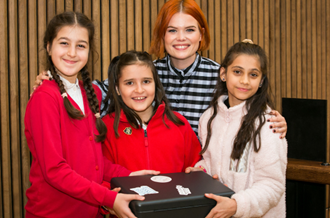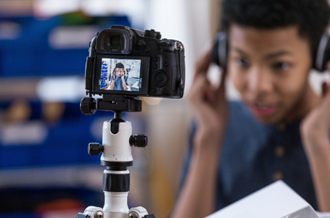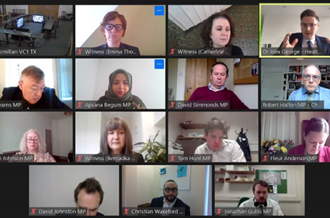Coronavirus: parents can learn from teenagers on how to deal with change
In a piece originally published in The Scotsman, School Project Manager Sarah Haywood explores how teenagers are coping with change in these uncertain times - and how adults can learn from them.

If necessity is the mother of invention, teenagers may have a head start when it comes to coping with the changes provoked by Coronavirus.
Change is scary. Change that is potentially life-threatening is even scarier. Change always entails a loss of something and even when the change itself seems welcome, loss can provoke grief.
The Coronavirus pandemic has forced an unprecedented amount of change and disruption into our twenty-first century lives, without much warning and without us asking for it. I work as a School Project Manager for Place2Be, managing and delivering an in-house mental health service in a secondary school in Scotland, where Place2Be has been working with primary and secondary schools for 19 years.
In our partner schools we offer counselling for children and young people, individually and in groups, as well a self-referral service called Place2Talk, which all children and young people can access if they want some time to speak in confidence. We also support parents and carers, and offer consultation time for school staff.

It was from this vantage point that I watched the last week of ‘normal’ life in schools unfolding, before the physical buildings closed and teaching moved online. It was a challenging time, but it also offered an incredible view of the resilience and tenacity of young people, their families, and especially school staff.
In a week when many other people were being told to stay home, learning and teaching continued apace, with the adults in school – teachers and support staff alike – working unbelievably hard to keep the ship steady, make plans for the weeks ahead, while also managing and containing the anxiety that was spreading faster than coronavirus itself. Staff members’ dedication to their roles, and the genuine care they showed for each young person’s potential needs during the school closure period, were humbling to see.
Young people’s responses to what was going on varied widely. Some were understandably worried (for their families, their own health, and for what this would mean for their futures), while others showed a sort of matter-of-fact acceptance that life as we know it was abruptly ending, and that the future was now very uncertain.
Their level-headedness took me a little while to understand, at a time when so many adults (including me) were struggling. Then it hit me. Adolescence is full of change: changing bodies, changing relationships with both family members and friends, and an ever-changing sense of identity.
Many young people are also well versed in living a large proportion of their lives online: most secondary schools use digital platforms for teaching and learning, and many teens do a good deal of their socialising in the virtual world, engaging in what I think of as ‘ubiquitous relating’ – a play on technologist Mark Weiser’s term ‘ubiquitous computing’ from the 1980s. By this I mean that adolescents are skilled in working on and developing their relationships anywhere and everywhere, 24/7, via their digital devices. Young people are often the earliest adopters of new social media platforms and other digital technologies – useful skills to have in our brave new working-from-home world.
During the long school closures and restrictions on going outdoors, young people will want and need to use their devices to stay connected, not only to their friends but also to the things they are passionate about, the things that support their emerging (and sometimes fragile) sense of self. For example, e-sports might need to take the place of real life sports for a while, so digital football, golf and basketball games might take on a new significance for young people in our families. Parents and carers might want to make (or revisit) family media plans to take this into account.
Of course, balance and the healthy use of devices are important. But if adults are spending much of their time using technology for both work and play, we can reasonably expect young people to call us out on any inconsistencies around screen time boundaries. Keeping the lines of communication open about our expectations is key, as well as reflecting on our own needs and behaviours, and perhaps being willing to learn a trick or two from the masters of change themselves.
Find more advice and guidance on supporting children and young people’s mental health through the coronavirus pandemic here.
News & blogs

UK school children’s pandemic memories preserved in historic Time Capsule
The memories of school children’s lives during the Covid-19 pandemic are preserved for the nation at BAFTA's headquarters.
READ MORE
Place2Be, BAFTA Kids and Oak National Academy launch 2021 Schools Time Capsule
This new project is an opportunity for children and young people across the UK to reflect on life during the pandemic.
READ MORE
Place2Be presents evidence to House of Commons
Our Chief Executive presented evidence on the impact of the pandemic on children and young people’s mental health.
Read more



